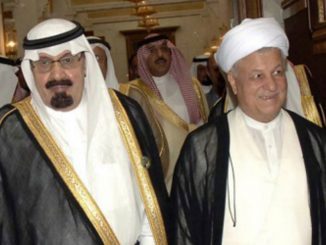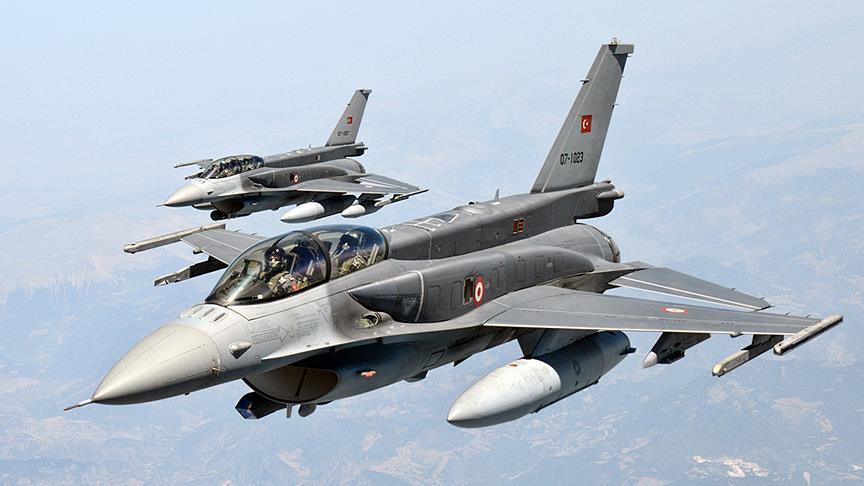
As the U.S.-led offensive against ISIS pushes fighters out of Mosul into Syria, a similar offensive has begun against militants in Raqqa. The shared thing between the two offensives is the heavy price the civilians will pay.
The US-backed Syrian Democratic Forces (SDF), a group comprising mainly of Kurdish armed groups fighting in Syria, said at a press conference on last Sunday the offensive to reclaim the de facto capital of Islamic State (ISIS) would begin on Saturday.
Of the SDF’s 30,000-strong force, up to 25,000 fighters come from the YPG, according to some estimates.
The fighters called on civilians to stay away from areas in which ISIS fighters are known to be, and to try to run to “liberated” areas of the country.
The SDF statement said the operation aimed to “isolate and then topple the capital of international terrorism”, indicating an initial phase aimed to surround Raqqa before any move to seize it. No time frame was given.
The US officials said they support the offensive, as they fear “Raqqa” will be a start point for attacks against the west.
“There’s a sense of urgency about what we have to do here because we’re just not sure what they’re up to [ISIS], and where, and when,” Lt. Gen. Stephen Townsend, the top U.S. military commander in Iraq, said at a news conference from Baghdad. “But we know that this plot planning is emanating from Raqqa.”
One consequence of the Mosul battle has already been to push ISIS fighters and leaders into Syria, especially to Raqqa.
The Pentagon officials said they feared that ISIS operatives in Raqqa are being backed by the ones who fled battle in Mosul.
The influx and entrenchment of ISIS leaders into Syria will make it even more difficult to end the conflict there.
Demographic change and ethnic cleansing
The SDF will be backed up by airstrikes in and around Raqqa from the U.S.-led coalition, which has been carrying out airstrikes in the area for over two years. The campaign to “isolate, and ultimately liberate, Raqqa marks the next step in our coalition campaign plan,” U.S. defense secretary Ashton Carter said. It is expected to take months.
Pentagon officials say their intelligence shows that ISIS’ plotting in Raqqa is similar to plots and attack preparation that took place for nearly two years in the border town of Manbij, which was the last stop in Syria for jihadists on their way to Europe. The mastermind of the November 2015 terrorist attacks in Paris, which killed 130 people and were sanctioned by ISIS leaders, reportedly spent considerable time in Manbij and received training there.
Kurdish militias were able to retrieve Manbij city along with many other areas from ISIS control earlier this year. However, they are being accused of planning a demographic change in the areas they take over.
The Kurdish militias are making ethnic crimes against Arab citizens in northern Syria, and an organized displacement plan pf the original residents to make their goals in separating the area from Syria easier to achieve, according to observers.
Amnesty international said the Kurdish militias have forcefully displaced thousands of Syrian civilians, mostly Arabs, and demolished villages in northern Syria.
Amnesty said its findings were based on visits to 14 towns and villages in the provinces of Hassakeh and Raqqa this summer, areas under Kurdish control. It said the abuses amount to war crimes.
The rights group said at least two villages were entirely demolished. In at least eight other villages, the residents were forced to leave and were sometimes threatened with being shot or targeted in US airstrikes. It said the victims were mainly Arab, but also included Turkmens and other Kurds.
“YPG forces … have implemented a new sectarian and ethnic cleansing campaign against Sunni Arabs and Turkmen under the cover of coalition airstrikes which have contributed bombardment, terrorizing civilians and forcing them to flee their villages,” a statement by Syrian rebels also said.
Syrian Kurdish groups have made no secret of their aim to link up their two autonomous regions, or cantons, in northeastern Syria with one further west – Afrin. Their dreams were threatened after Turkey backed Syrian rebels retrieves the 80 km stretch of territory at the Turkish border near Manbij from ISIS and ordered the Kurdish militias to leave the area.
However, they headed to Raqqa instead trying to force more areas under their control before they clash with the Turkish military.
Hundreds of deaths
The demographic change isn’t the only threat to civilians in the area, as the US-led coalition has harvested hundreds of their lives.
A US-led coalition air strike killed at least 20 civilians in a village north of Islamic State’s Syrian stronghold of Raqqa, raising the number to 680 civilians killed by them in total.
The UK-based Syrian Observatory for Human Rights said that the strike on al-Heesha, 25 miles (45km) north of the ISIS stronghold, occurred overnight on Tuesday, killing at least 20 civilians including six women and a child.
The Syrian Observatory says at least 680 civilians, including 169 children, have been killed since coalition air strikes began in Syria two years ago.
US State Department spokesman John Kirby said that the US “takes seriously all credible allegations of civilian casualties.”
But ironically, the coalition has admitted responsibility for only 55 civilian deaths in both Syria and neighboring Iraq between August 2014 and July 2016.
Last month, Amnesty International said some 100 civilians appeared to have been killed in three coalition air strikes in June and July 2016 around Manbij, north-west of Raqqa, during an SDF operation to drive ISIS militants out of the town.
“We fear the US-led coalition is significantly underestimating the harm caused to civilians in its operations in Syria,” said Lynn Maalouf, deputy director of research at Amnesty International’s Beirut office in October.
“Some of these attacks may constitute disproportionate or otherwise indiscriminate attacks … It’s high time the US authorities came clean about the full extent of the civilian damage caused by coalition attacks in Syria.”



